|
Thank you for joining me on this Journey of Dares. As we round the bend toward the last 10 Dares, remember that our lives consist of a series of spectacular events. These events seem to immediately define the life that each of us has chosen to live. But life is rarely defined by one exclusive event; life cannot be equated to or summed up by one specific stop along the way. In reality, life is more like a fantastic journey -- a long road trip that is being continuously re-mapped. Instead of DEFINING life, our decisions actually REFINE our respective lives. And when preparing for a long road trip, it’s a good idea to clean the windows of our vehicles. Of course, as the trip continues, our windows often become somewhat cloudy. To keep our vehicle and occupants safe, we must periodically clean the windshield. The vehicle’s rear window might also be dirty… But it’s not the rear view that matters most. The front, forward-looking view provides the most important viewpoint. Likewise, our bodies are the vehicles for our souls. And the same safe-travels concepts apply to our journey in life: “Our eyes are the windows to our soul.” Accordingly, let’s cherish the road on which we have travelled. But let’s not spend so much attention on the past that we end up wasting our present gift of time thinking about what has already happened. Let’s focus on the road ahead. As we know: Days will come and go. The sun will set, and night will slowly but surely seep in. As one day slowly begins to mesh into another day, we are often left wondering where the most recent day went. And for many of us, merely reflecting on the previous day can be as challenging as the day itself. As we focus forward, we must learn to periodically clean our glasses. In real-world terms, we must not wait until the end of the day to re-energize. With all the technology, traffic, and tests we face throughout the day, a proactive and practical approach to The Ideal life is a great strategy to use. Unfortunately, the idiom “rose-colored glasses” is often used as a derisive idiom used to ridicule or demean those of us who are optimistically inclined. Me? I consider myself to be an optimistic realist. This is just a fancy way of saying, “It’s not what happens to you that matters most; it’s how you respond to it" (whatever “it” may be). Accordingly, I believe in being response-able… responsible for how we act, react, create, and destroy things in our life. (Huh? Did he just say, “...destroy”?) (Yes: sometimes we must destroy a few things in the name of progress. Stated a different way: You have to break a few eggs to bake a good cake.) Destroying bad habits, bad thoughts, and bad karma is not a bad idea. Likewise, having rose-colored glasses is actually a good thing. Just remember: windshields, thoughts, and even rose-colored glasses eventually need cleaning. The next 10 Dares are essentially a step-by-step guide to proactively clean your rose-colored glasses throughout the day and week. Start, maintain, and end your day with these 10 practical steps to Clean Your Glasses. And here’s HOW to do it. I will cover these steps in detail over the Final 10 Dares:
Let’s focus on the road ahead. But first, I dare you to... Clean Your Glasses! Accept. Adapt. Achieve! ® John H. Clark III is an optimistic realist.
Principal consultant at The PIE Group, John believes better development of leaders is what we (all) need. And to be better organizations, we need more good leaders, not followers. To build better leaders, we must start with the individual (you, she, he, and me). Described as “an innovative leader,” John teaches leaders, organizations, and individuals how to inspire each other. With a bold goal to inspire a worldwide community of optimistic realists who continuously accept, adapt to, and achieve the bold and beautiful concept of The Ideal Life, John is leading a movement to inspire people to apply his trademarked mantra {Accept. Adapt. Achieve! ®}. An innovative business manager and retired naval officer, John is fascinated by leaders and organizations that make the greatest impact within their organizational culture and within the “real” world — people who “get it.” Over the course of his life as a military leader, corporate mentor, and innovative content creator, John has discovered a wealth of insight about how we think, act and communicate within our respective work/life environments. As a career naval officer, mentor, educator, and optimistic realist, he has devoted his life to sharing insights to assist in our quests to become better at what we all do – live @ work! An optimist with a penchant for writing about realistic solutions to the challenges of everyday life, John is the author of 3 books: a leadership-development insider, "The Ideal: Your guide to An Ideal Life," a teen-focused guide, "Getting Out: Expert Advice for Today’s Teens," and the Christian-based book, "God’s Heartbeat: A Powerful Premise for Leading a Christian Life." He delivers a unique and refreshing point of view to life's seemingly overwhelming situations. Through books, blogs, and everyday conversation, John's message resonates with an empowering blend of ideals that enrich, uplift, and “authorize” people to set and achieve goals far beyond current mindsets. His trademarked phrase is a winner: At one time or another, we have all heard, “Think outside the box.” Ironically, in today’s boxed-in world, thinking outside the box is almost impossible. We sleep on a box. We bathe and shower in a box. We live in a box. We drive in a box. We work in a box. Most of our external thinking is done by a box (computer or smartphone). And we often get our (fast) food in a box. Yes: our lives are full of boxes. But for this week's Dare, the most important box is the good ol' elevator. As we stand before the closed door of the yet-to-be-called elevator, we have only one small-but-significant decision to make: Up or down? Upon waking in the morning and setting a course for an office building, service place, or manufacturing facility, we don’t spend much time thinking about HOW we will get to our place of employment. Yet we somehow arrive at the correct address, select an appropriate floor of the proper building, and then arrive at our exact destination. Likewise, there is another type of elevator-box that can actually free us from the confines of a bad attitude. I call this box the Elevator of Life. The Elevator of Life offers an opportunity to choose the direction of our attitude every hour of the day. And if we can set a short and simple course for just a few hours during one single day of positive thought and action, we can definitely weave together one day of the same... and then another day... and then another day… and so on. BUT... we must first make one grand decision: Which button shall we press: Up or down? If we press the ‘up’ button, the elevator will simply take us up. If we press the ‘down’ button, the elevator will definitely take us down. And in our respective lives, selecting a good or bad attitude can be as simple as pushing a button. However, on too many occasions, we blame others for our attitude. We blame coworkers or spouses for making us mad. We blame children for making us lose our temper. We blame our jobs for making us unhappy. We blame, we blame, and we blame. Why do we freely GIVE so much blame to others? Instead of giving the blame to others, let’s accept our response-able roles in pressing the single button that raises or lowers the Elevator of Life. Just the other day, I overheard someone say to a coworker, “See what you made me do: I got off on the wrong floor!” Really? I’m guessing she chose to overlook the fact that her nose was buried into her iPhone screen as she blindly followed the exiting crowd off the elevator and onto a different floor. In a “real-life” elevator, it’s nonsensical to blame other people when we get off on the wrong floor. Likewise, it makes no sense to blame other people after we push the DOWN button when we actually meant to go UP to a higher level. In a remarkably similar fashion, we shouldn’t blame other people when our personal attitude is in an apparent, actual, or even almost downward spiral. Perhaps the Elevator of Life seems too simplistic. Or perhaps you think it doesn’t apply to your daily life or how you think. Well, consider what happens as soon as you walk towards the elevator in a building: Before you actually enter the transportation portal, you are faced with one simple question… one singular choice: To what relative level do you prefer to travel? Will you descend downward…or ascend to greater heights? Is your yet-to-be-chosen floor ABOVE or BELOW your present location? Up or down? Likewise, in the Elevator of Life, regardless of how you have arrived at your current place in life, you still have one simple choice to make: To what relative location will you go from here? It really is a simple choice: Up or down? Yes: where you currently stand is important. But where you are going is far more important! Like water UNDER the bridge, your challenges will come and go. But don’t treat those challenges as if they (or you) are particularly special because of them (the challenges). After all, everyone faces challenges. Yes, some challenges appear insurmountable and hopeless. However, as Elvis said, “Life goes on, and this ol’ world will keep on turning.” And as you stand within your respective box (your Elevator of Life), you are faced with one critical choice: Will your thoughts and actions descend downward into the deep, darkest pit of despair? Or will you press the UP button and self-exalt yourself OUT of your current malaise? By actively, consistently, and persistently choosing to push the UP button, your Elevator of Life will escalate higher... and then higher still. And as sailors and aviators know, the height of our eyes determines our ability to see up to, over, and beyond the horizon. The higher our altitude, the farther we can see past the current horizon. Most fascinating is this concept of “the horizon.” It is “there” until it is “here.” I can see it, but I can’t actually see it... or get to it. But if I stand tall enough… if I elevate my mind and body high enough, I can actually see OVER it… only to be greeted by yet another horizon. Yes, my friend: the higher your attitude, the better you can see past your current problems… and the (more) better you will become in your quest to deal more effectively with challenges that exist before, at, and over the current horizon. Please, please, please do not underestimate this far-reaching invocation of your synergistic self. Once you have elevated your being, you are perfectly poised to become what others will perceive as prescient… knowing in advance what they simply cannot see. (Speaking of synergy and your synergistic self, allow me to digress and say, “There I said it; there I done it: SYNERGY!” Perhaps it is a trite, overused word. And perhaps it is often used totally out of context. Nevertheless, like the healthy mushrooms, cauliflower, and onions that are all too often deep-fried into a delicious, devilish dish devoid of almost any recognizable nutritional goodness, the original product is still amazingly wonderful). But I digress… When you align your mind, body, and “synergistic self,” you become a force with which the world must reckon. And as your height of attitude grows, so, too, will your ability to forgive others, focus on the positive, and find your mission in life. As you accept, adapt, and achieve… your Elevator of Life will continue to ascend, streaking toward the wild blue yonder until… WHOOOSH ! Like that wacky elevator in Willy Wonka’s chocolate factory, you and your true self will escape the mighty confines of a building designed by others. No longer restricted to a view from the inside looking out, you will see far beyond the top floor of a place where other people remain tethered to hopes of reaching the (mere) top (of that particular place). As you leave the comfortably restrictive confines of the building, you will soon discover that the top of that particular box is nowhere near where you want to be. You will soon think, live, and play far outside of that box. You will achieve The Ideal Life. May I remind you that The Ideal Life is not perfect; there is no such thing as perfection. However, in The Ideal Life, sooner or later, we discover those things that are perfectly suited for us. Some people might even say those things were created specifically for us. Yet many more people will simply push the DOWN button, getting off on not only the "wrong" floor, but also on the wrong foot, the wrong path, and the wrong side of their personal history. In reality, there is no “wrong” floor… as long as you have somehow learned from that little diversion of an excursion. Accordingly, as you look back over the years, and through those doors so long-ago closed… embrace the best and worst of times. Every single one of those times belongs to you. They are all yours. But you don’t necessarily belong to them. And since you can’t change them, you might as well consider those life episodes as assets, and not the liabilities we seem to happily heap upon ourselves. Here’s the Idea: It is impossible to think about two things at once. When we CHOOSE to FOCUS on positivity, we begin to see more and more positivity. Notice the emphasis on the word “choose.” We have a choice regarding our ability to respond to things in life. And as you and I know, there are plenty of things that can potentially bring us down in life. Aside from those things, why not choose to see positivity elsewhere, especially when it comes to your specific life. Here’s the Deal: FOCUS on the positive aspects of life, and you will automatically overcome negativity. In a quest for The Ideal Life, we all face the same allegory… this Elevator of Life. Sure, we can always look back at any particular episode in our lives and figure out a way to blame this, that, or the other for our current situation. But that’s like getting off the elevator and staying stuck on the wrong floor. There is no wrong floor. Join me on this elevator and say to your self: As long as I am alive and reading the pages of this awesome blog, I have a very credible opportunity to do something great with my life. What is this great thing I can do with my life? I can simply live it! And I can live it to the fullest. I will not allow lessons to be seen as mistakes. I will not get stuck on the wrong floor. Every floor matters, whether I liked it or not. Every floor I have ever walked has added some form of value to my life. Best of all, I now realize that I can simply and literally turn myself and my attitude around; face the elevator door once again… and push the UP button. Yes, it is true: My attitude determines my altitude. And today, I want The Ideal Life. Today, I accept the fact that, regardless of what has happened in the previous days of my life, I still retain the awesome power to choose my attitude. No one else has this power to change me. Only me. I can always push the UP button! And I will... ********** Indeed… It’s all about YOU. But tell me: What’s your role in your soul, your goal, and for whom the bell tolls? Today, I dare you: Push Your (own) Buttons. Accept. Adapt. Achieve! ® John H. Clark III is an optimistic realist.
He believes better development of leaders is what we (all) need. And to be better organizations, we need more good leaders, not followers. To build better leaders, we must start with the individual (you, she, he, and me). Described as “an innovative leader,” John teaches leaders, organizations, and individuals how to inspire each other. With a bold goal to inspire a worldwide community of optimistic realists who continuously accept, adapt to, and achieve the bold and beautiful concept of The Ideal Life, John is leading a movement to inspire people to apply his trademarked mantra {Accept. Adapt. Achieve! ®}. An innovative business manager and retired naval officer, John is fascinated by leaders and organizations that make the greatest impact within their organizational culture and within the “real” world — people who “get it.” Over the course of his life as a military leader, corporate mentor, and innovative content creator, John has discovered a wealth of insight about how we think, act and communicate within our respective work/life environments. As a career naval officer, mentor, educator, and optimistic realist, he has devoted his life to sharing insights to assist in our quests to become better at what we all do – live @ work! An optimist with a penchant for writing about realistic solutions to the challenges of everyday life, John is the author of 3 books: a leadership-development insider, "The Ideal: Your guide to An Ideal Life," a teen-focused guide, "Getting Out: Expert Advice for Today’s Teens," and the Christian-based book, "God’s Heartbeat: A Powerful Premise for Leading a Christian Life." He delivers a unique and refreshing point of view to life's seemingly overwhelming situations. Through books, blogs, and everyday conversation, John's message resonates with an empowering blend of ideals that enrich, uplift, and “authorize” people to set and achieve goals far beyond current mindsets. His trademarked phrase is a winner: As many bettors in Vegas have discovered, despite all of the cash inside, ATM’s do not dispense an unlimited amount of money! Withdrawals are limited to the amount of funds actually deposited into your specific checking or savings account. Wouldn’t it be great if ATMs did, indeed, dispense an unlimited amount of cash? And wouldn’t it be nice if you had a wealthy relative who consistently filled up your ATM accounts? Imagine for a minute that you really do/did have a wealthy relative. And from the time you were a child, this rich relative has given you an awesome ATM account, allowing you to withdraw $86,400 every day… for as long as you can remember. Given that you are a smart, well-meaning person, you would probably consistently send thank-you cards on various holidays. Sometimes you might even send cards “just because.” And as a long-time recipient of this daily gift of $86,400, you would have absolutely no reason to believe this rich relative would ever stop giving you $86,400… every single day… for the remaining years of your life. But what would happen if and when you went to the ATM to withdraw your daily allotment of $86,400, and you suddenly found the account to be closed? Empty. Overdrawn. Closed. Wow… your lifetime ATM account is now closed. But was it really YOUR account? Oh, sure: you were enjoying all of the benefits of having the money pass through the account (the free money; the free-living lifestyle; and the freedom from thinking about the possibility that the withdrawals would ever stop). However, the account was never really yours, per se. All you have ever really owned is and was you. But, if you think about it… …if you don’t control your heartbeat (and none of us know the exact date and time of our very last heartbeat), do you really and truly “own” you - your self? You… You are special and unique. And you are not average. You are not below average; you are not above average. You are wonderfully blessed. And although you may or may not have a rich relative, you **DO** have a certain wealth of time in this world. And it gets better... Your personal time machine is stocked with 86,400 seconds every single day. Yes… every single day, you, he, she, me, and everyone we know withdraws 86,400 seconds from the “ATM of Life.” Mathematically speaking, there are 60 seconds in a minute. 60 seconds x 60 minutes equals 3,600 seconds in an hour… and 86,400 seconds in each and every day. (3,600 seconds per hour x 24 hours = 86,400 seconds each day). Thus, you are blessed with something far more valuable than money: You have the gift of time. And when harnessed, leveraged, and invested by the wonderfully gifted person that is you, time becomes a tool that is more valuable than the prettiest diamond, more useful than the handiest gadget, and more powerful than anyone you know (with regard to your specific life). Yet, we often waste so much of our time. Your time is HERE while you invest in the knowledge found in these few words. Your time is also THERE when you undermine yourself by watching divisive talk shows that disguise themselves as “news programs.” It is there when you spend too many minutes, hours, and collective days revering things and people who simply do not deserve one single second of your most precious resource. After today, on what will you continue to spend your sacred seconds? (Remember; your account could be closed tomorrow). Let’s look at an example of the similarities of how time and money are used. If you drive, then you probably pay for gas to power your car. If you ride the bus or train, you probably pay to use public transportation. The price for a tank of gas and the fare for a ride on the bus are far cheaper than the cost of the time you spend on unnecessary diversions of your life’s allotment of minutes, hours, and days. Allow me to explain: A tank full of gas is a tangible, useful product. A ride on the bus is a tangible, useful service of transportation that is provided in exchange for your money. These are good uses of money. But take a minute and consider what you are getting in exchange for your (wasted) attention. As you will soon see, you are probably paying far too much (attention) for things that are absolutely worth less than what you think. I will say it again… Worth "less” than you think. Absolutely worthless. In this attention-starved world, many of us are living way beyond our current means. We spend so much attention on tiny bright screens, people at work, cars on the roads, signs on the street; songs in our heads; commercials in between; magazines; newspapers; neighbors; junk mail; and (fill in the blank here: _________ ). And yet, many of us fail to budget an appropriate amount of time for healthy living, including consuming the BEST ideas, thoughts, and foods (uplifting, positive, and fruits & vegetables, respectively); resting our minds, bodies and souls; and spending time with those who mean the most to us. Notice the verbs in the previous paragraph: budget, consume, resting, and spending. Budgeting our time is actually a great way to plan for a successful life. Ahhhh… but what is our contemporary definition of success? Do you want to make more… so you can spend more? Do you want to have more… so you can be sure? Of course, you can do whatever you want… and most of us do just that, within reason. Concurrently, I recommend budgeting your time… If you budget your time, you can do so much more with what you currently have. In reality, budgeting your time is sorta kinda like “planning for life.” And as you and I know, (real) life is what happens when we are busy planning for something different. Accordingly, let’s plan (and do) those things that we speciously say are important to us. When we invest time budgeting our time, we are on our way to ensuring a solid investment into what really matters in life… and not just those things of which we often want more (… the kind of things for which you can pay and/or borrow money). Undoubtedly, we are a consumerist society. But what exactly are we feeding our minds, bodies, and souls? Think about it: When was the last time you spent 30 undisturbed minutes thinking ONLY about you? Better yet, when was the last time you spent 30 minutes thinking about absolutely nothing? Some call this type of thinking “meditation.” I call it "necessary." Lastly, why do we casually say that we “spend” time with friends and family? Clearly, our friends and family are assets... not liabilities. Accordingly, let’s call the time shared with friends and family “an investment.” Likewise, time shared helping others, bettering your self, and becoming an active part of the solution set are investments of time that you can do today – right now. And here’s a sweet little secret you should never, ever forget: The most basic definition of “now” is… “Your attention.” Whatever you are doing right "now..." and the next "now" and the next... ...are indicators of how you are paying (spending or investing) your attention. And now that I have your attention, consider this: Professional financial planners (those people who get paid to manage other people’s money) advise us to “pay ourselves first,” which is to say that we should first set aside funds for savings… and then pay and spend our remaining funds on other necessities and wants. Of course, we don’t all do this. However, if we accept and adapt to this sage advice, we will likely achieve some degree of financial success later in life. Indeed, the same advice applies to our time budget. If we first set aside time for self, we will likely achieve some degree of personal, professional, and social success later in life, regardless of how the definition of success is delineated. So how do we do this? How does one go about setting aside time for self first? Start by... ...budgeting your time. Then clean your glasses - the way you look at the world. ...and clean them often. Remember: Our time budget is firmly fixed at a finite amount - twenty-four hours every single day of every single year. And we will never get one more hour, one more minute, or even one more second. Unfortunately, our contemporary lifestyles reflect an almost bankrupt, cavalier attitude toward the limited time we have NOW. Interestingly, even if we **could** somehow gain a bit more time, we would probably squander away those extra minutes, too. It’s time to pay attention to what I am saying. You can’t borrow from yesterday or tomorrow. All you have is today. What will you spend your attention on today? Think about your answer… before your account is closed. Then again, ...there's Always Tomorrow... Maybe (ATM). ~ ~ ~ Indeed… It’s all about YOU. But tell me: What’s your role in your soul, your goal, and for whom the bell tolls? Today, I dare you: Budget Your Time. Accept. Adapt. Achieve! ® John H. Clark III is an optimistic realist.
He believes better development of leaders is what we (all) need. And to be better organizations, we need more good leaders, not followers. To build better leaders, we must start with the individual (you, she, he, and me). Described as “an innovative leader,” John teaches leaders, organizations, and individuals how to inspire each other. With a bold goal to inspire a worldwide community of optimistic realists who continuously accept, adapt to, and achieve the bold and beautiful concept of The Ideal Life, John is leading a movement to inspire people to apply his trademarked mantra {Accept. Adapt. Achieve! ®}. An innovative business manager and retired naval officer, John is fascinated by leaders and organizations that make the greatest impact within their organizational culture and within the “real” world — people who “get it.” Over the course of his life as a military leader, corporate mentor, and innovative content creator, John has discovered a wealth of insight about how we think, act and communicate within our respective work/life environments. As a career naval officer, mentor, educator, and optimistic realist, he has devoted his life to sharing insights to assist in our quests to become better at what we all do – live @ work! An optimist with a penchant for writing about realistic solutions to the challenges of everyday life, John is the author of 3 books: a leadership-development insider, "The Ideal: Your guide to An Ideal Life," a teen-focused guide, "Getting Out: Expert Advice for Today’s Teens," and the Christian-based book, "God’s Heartbeat: A Powerful Premise for Leading a Christian Life." He delivers a unique and refreshing point of view to life's seemingly overwhelming situations. Through books, blogs, and everyday conversation, John's message resonates with an empowering blend of ideals that enrich, uplift, and “authorize” people to set and achieve goals far beyond current mindsets. His trademarked phrase is a winner: Have you ever visited a paint store? Have you ever seen the little placards that list all the available colors of paint? The experience can be overwhelming for even the most patient and talented interior designers. Similarly, your future is a beautiful canvas of unlimited choices, characters, chapters, and changes. But how can you be expected to know which charted path is the best for you? Where can you go to find simple, straightforward advice on life? What is the best way to sift through the multitude of dreams, data, and dabbles of truth? Answers to these questions are not in the media. In this day and age of overwhelming media, there are so many facets of truth. One advertiser says Brand A is the best choice; while another advertiser spends millions of dollars telling you Brand B is the obvious choice for your money. Indeed, media is everywhere. I grew up watching commercial media on three television channels. Actually, sometimes our television would draw in a fourth channel if I could convince a sibling or a cousin to hold the TV antennae just right. Then there was the radio media and its interesting commercials. During my teenage years, television, radio, billboards, magazines, and newspapers rounded out the top five mediums of media. Today, media is everywhere. In addition to the five venues listed above, media is splashed across buses, barns, and baseball diamonds. At the professional fields there was always media presented; but now you can see media splashed across the high-school and intramural sports fields! In addition to televisions in employee break rooms, many businesses now have televisions in the lobby. Stores, big and small, provide television-watching as a welcomed alternative to leaving the store earlier than usual. As we become more mobile, the availability and integration of media continues to parallel our own mobility. Our very own personal cell phones are already well integrated into almost everything we do. At the train stop, bus stop, and at every stoplight in between, everyone has his or her nose buried into the handheld screen. And as the personal computer continues its seamless morphing into our lives, media will not only follow us from home to work, and then back home again, it will soon dictate what is most important in our lives. Before departing the office, many people already synch their cloud “homework” files to their home computer instead of carrying them home inside a briefcase or satchel. Drivers already use cell phones as personal navigation devices (PND) to find the best route from Point ‘A’ to Point ‘B’. Many PNDs warn drivers of impending traffic jams and recommend alternate routes. Our mobile phones now advise us of the best place to stop and eat along the way... more media to pay attention. Along the route to work, there are electronic toll plazas where no money is necessary, as long as your personal electronic account has sufficient funds. At some point, however, as you stop to refuel your vehicle, try not to notice the media begging for your attention at the gas pump. Think about it: before you arrive at your destination, your mind has already made hundreds, if not thousands of decisions on what to do, what to think, and where to go. I currently work in an office environment located about thirty minutes from where I live. In the morning, the commute provides an opportunity to reflect on the day ahead, as well as listen to a few favored Podcasts and audiobooks. On the way home, I use the time to wind down. I usually try to focus on my family, and I try to forget about all the meetings I attended and the numerous e-mails I sent and received throughout the course of the workday. In general, I like the ease of e-mail. It is a great communication medium. Interestingly enough, when I was an active duty naval officer, I placed a philosophical quote in the signature line of my email. Regardless of the subject or recipient of my e-mails, I included one simple directive: “Choose your superlative; everything else naturally follows.” This tag line is not so much a directive as it is a revelation. A superlative is something that cannot be toppled. It is the best; the most; the highest; the deepest; the longest; and the surest. Here is the revelation: you make important those things that are important to you. Perhaps this may not sound like much of a revelation. However, many men and women say, “Family is important.” Yet they spend all day at work, away from family. Thus, for the guy who spends most of his time at work, family may or may not be the MOST important thing to him, relatively and realistically speaking, Some people say they want to live a healthy lifestyle, yet they do absolutely nothing to advance their style of life in a healthier direction. Thus, the cigarette smoker who spends countless hours inhaling smoke through a paper straw of smoldering, toxic tobacco cannot seriously say that a healthy lifestyle is important to her. On the other hand, every person is in absolute control over the choices he or she makes in life. As a result, the workaholic can change his ways and make his family more important; he can simply curtail his hours at work. Will his wages subsequently decrease? Perhaps. But what is more important: high wages or a loving, close-knit family with a near and dear father? Long hours at work and a high-paying job are certainly not to be frowned upon. Just don’t confuse the high priority of a great salary with the relatively low priority of a greater family. Likewise, those who want a healthier lifestyle can have a healthier lifestyle… if (and only if) they make it important. You are in absolute control over your choices in life. Others may provide input and influence. But... Decisions are yours alone to make. Consequently, as stated earlier, you make important those things that are important to you. Random things, indiscriminate people, and arbitrary places are simply not important to random people. Similarly, there are some mothers who do not receive Mothers’ Day cards from their children. For whatever reason, Mother’s Day cards are not important to the children of those mothers. Likewise, there are some children whose healthy lungs are simply not important to their parents who smoke. Oh, sure: the children are important; but the cigarettes are MORE important. Accordingly, I not only advise you to make important those things which are important, but I also suggest that you choose your superlative because everything else, by definition, naturally follows your first, highest choice. Remember: a superlative is something that cannot be toppled. It is the best, the most, highest, the deepest, the longest, and the surest. Your specific superlative is what you decide to put above anything and everything else. Ask yourself, “What choices have I made regarding my first, second, and third priorities in life? Who plays first fiddle in my life? Who plays second fiddle? For what person or event do I have the greatest respect? Above **ALL** else, what matters to me?” What is your CHOSEN superlative? In reality, you alone make conscious and subconscious choices every day. If you have a job, you consciously make the choice to leave your home and go to work; or you decide to stay home. If you drive to work, you may consciously decide to listen to a specific radio station, CD, or audio book. When you eat breakfast, lunch, and dinner, you decide what, when, and where you will eat. Some may argue that some of these decisions are made for you. Work sites, for example, may offer a cafeteria. Thus, some people would argue that they do not have the choice to eat where they want. However, the existence of the cafeteria does not force you to eat there. Likewise, the mere existence of your job does not command your presence; the music you listen to does not accidentally grasp the inner receptors of your ears. Consequences and repercussions aside, YOU are the only person who decides what YOU do. Indeed, there are a great many influences affecting you and your life. However, you (your “self”) have more to do with your life than anyone or anything else. Regardless of what happened to you yesterday, yester-week, and yester-year, you choose what you will do today. You decide which button to push. And it is just… that… simple. Death, divorce, and dangerous weather conditions can all lead to traumatic, life-changing events. However, you don’t have to actually wait for a huge tragedy to affect your life in a profoundly great way. You can have a life-changing event as soon as you finish reading the next two lines! Your life-changing event starts with one simple choice: Choose YOUR superlative. Everything else is secondary, tertiary, quaternary, quinary, senary, septenary, octonary, nonary, denary, and so on, and so on... Accept. Adapt. Achieve! ® John H. Clark III is an optimistic realist. He believes better development of leaders is what we (all) need. And to be better organizations, we need more good leaders, not followers. To build better leaders, we must start with the individual (you, she, he, and me). Described as “an innovative leader,” John teaches leaders, organizations, and individuals how to inspire each other. With a bold goal to inspire a worldwide community of optimistic realists who continuously accept, adapt to, and achieve the bold and beautiful concept of The Ideal Life, John is leading a movement to inspire people to apply his trademarked mantra {Accept. Adapt. Achieve! ®}. An innovative business manager and retired naval officer, John is fascinated by leaders and organizations that make the greatest impact within their organizational culture and within the “real” world — people who “get it.” Over the course of his life as a military leader, corporate mentor, and innovative content creator, John has discovered a wealth of insight about how we think, act and communicate within our respective work/life environments. As a career naval officer, mentor, educator, and optimistic realist, he has devoted his life to sharing insights to assist in our quests to become better at what we all do – live @ work! An optimist with a penchant for writing about realistic solutions to the challenges of everyday life, John is the author of 3 books: a leadership-development insider, "The Ideal: Your guide to An Ideal Life," a teen-focused guide, "Getting Out: Expert Advice for Today’s Teens," and the Christian-based book, "God’s Heartbeat: A Powerful Premise for Leading a Christian Life."
He delivers a unique and refreshing point of view to life's seemingly overwhelming situations. Through books, blogs, and everyday conversation, John's message resonates with an empowering blend of ideals that enrich, uplift, and “authorize” people to set and achieve goals far beyond current mindsets. His trademarked phrase is a winner: |
My purposeInspiring a worldwide community of optimistic realists. Archives
April 2024
Categories |
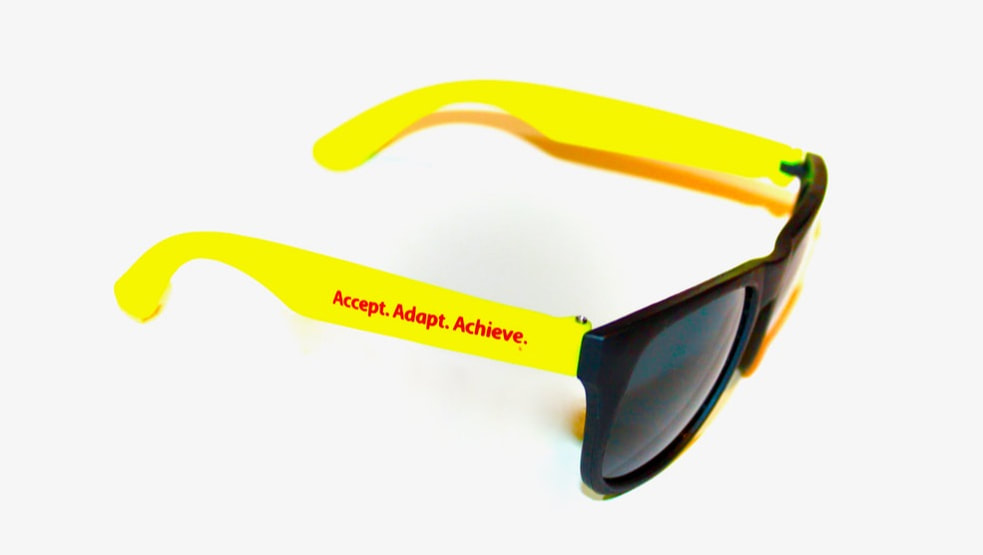
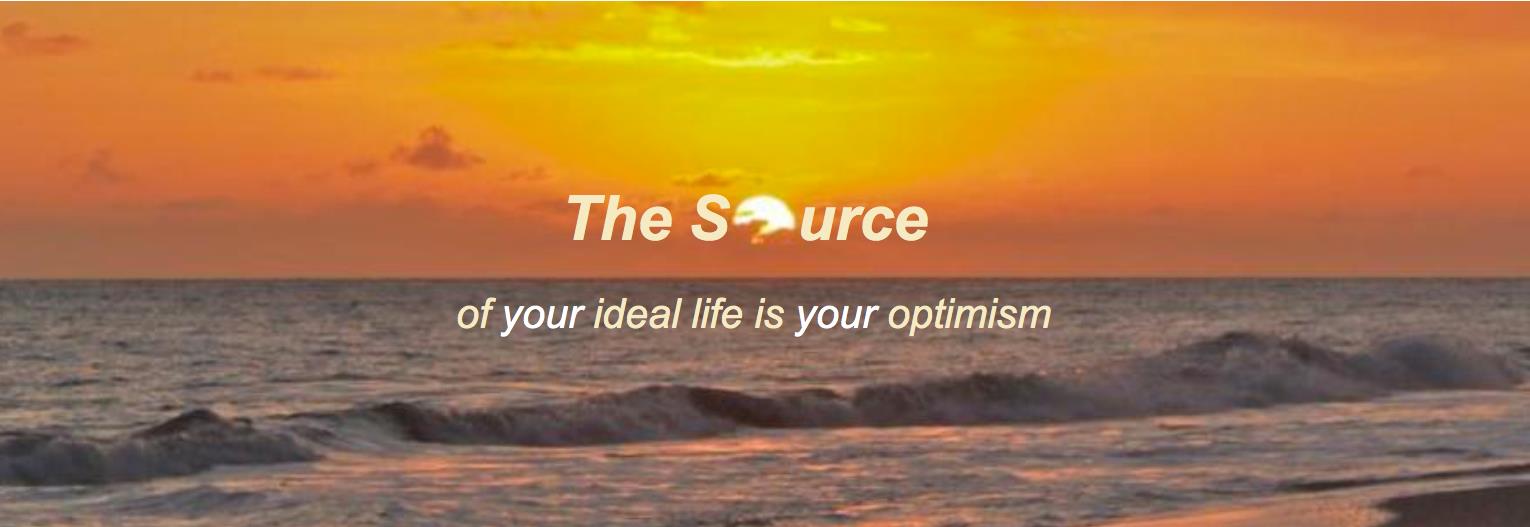


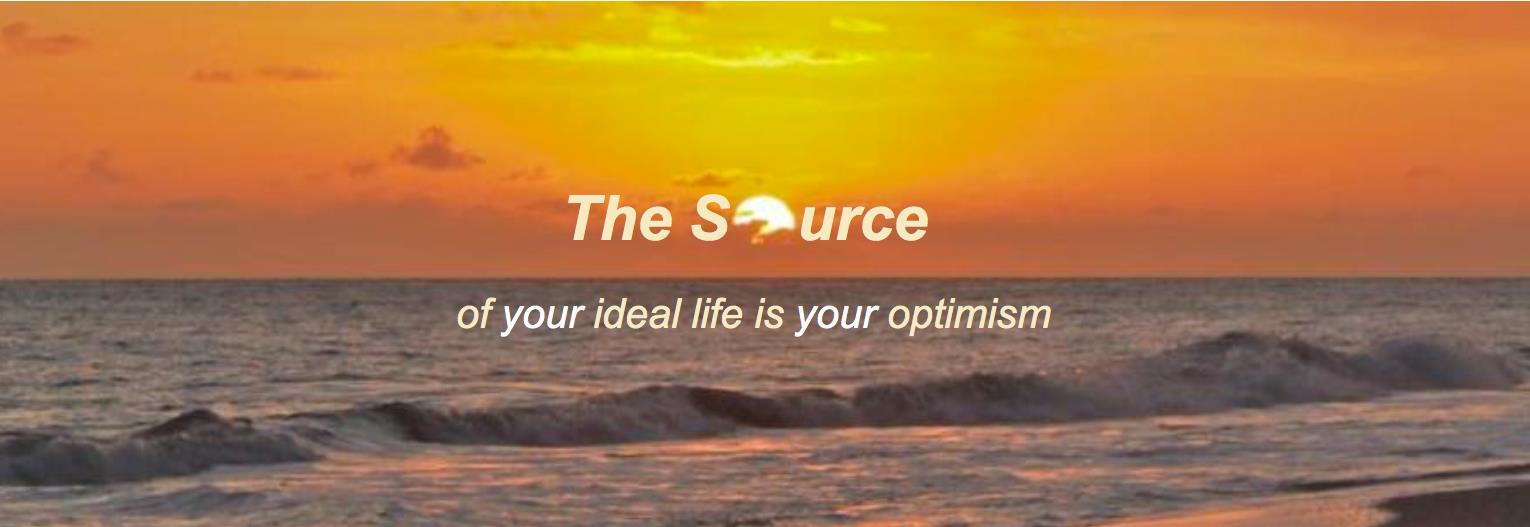



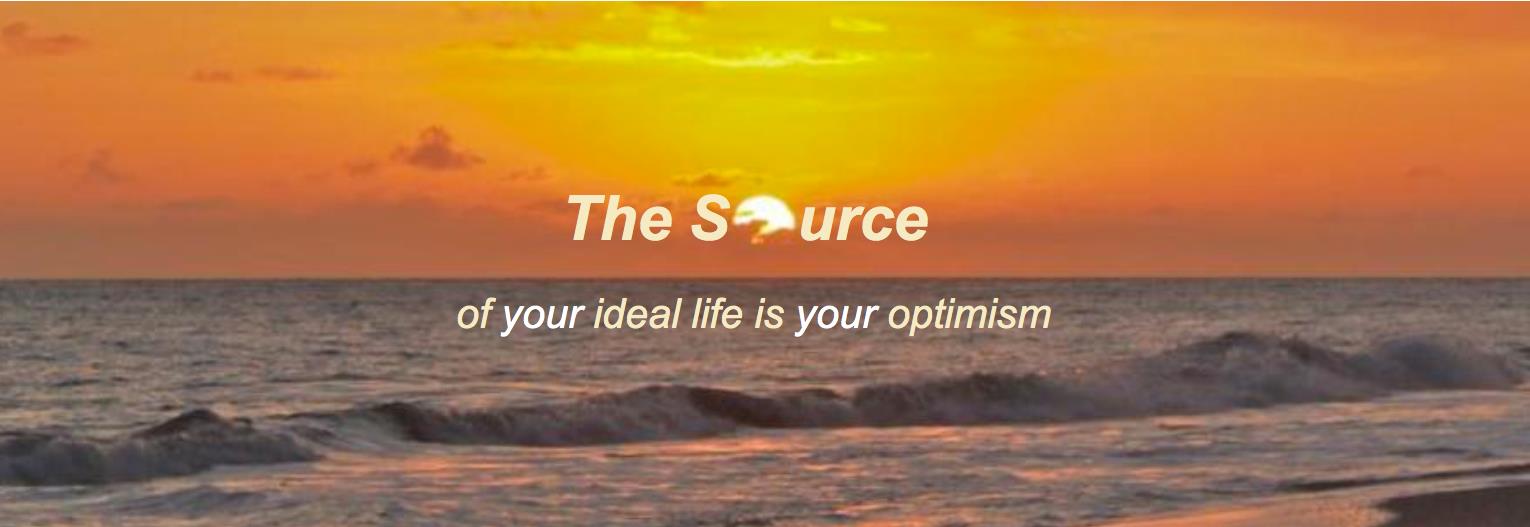



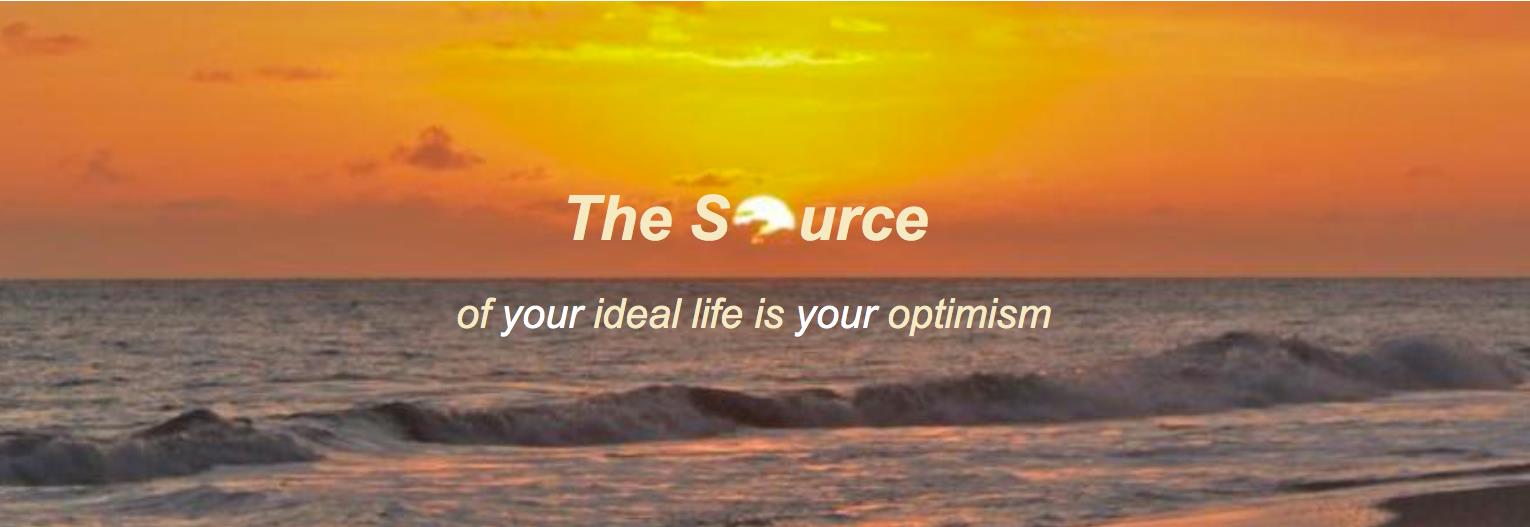

 RSS Feed
RSS Feed
